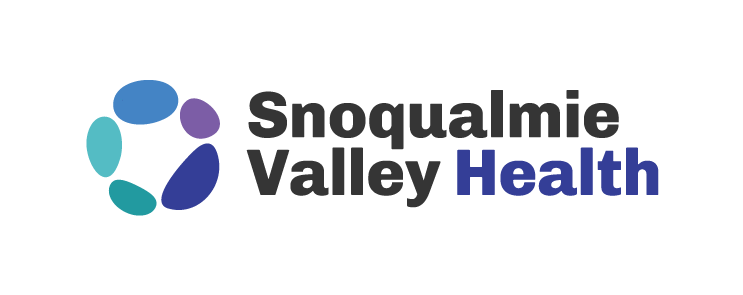Annually in October, Health Literacy Month gives us all the chance to ensure we understand health in our own lives and communities. This article will highlight ways to promote your personal health literacy and the ways in which Snoqualmie Valley Health is working to promote health literacy in the community.
The Institute for Healthcare Advancement works tirelessly to promote health literacy and equity, and they have outlined two definitions for health literacy to help us start the conversation. The first is personal health literacy, defined as how well as person can find, understand, and use information and services to make decisions about their own health and the health of others. The second is organizational health literacy, defined as how well organization equitably help all people find, understand, and use information and services to make decision about their own health and others.
There are several factors that contribute to health literacy, such as education, age, access to resources and cognitive ability. Anyone can face challenges in this area, though, as health information can be complicated or emotionally charged at times. Lower rates of health literacy have been linked to decreased probability of using preventative care services, difficulty managing chronic conditions, and an increase in preventable visits. So, how can we improve our personal health literacy? Read below for 5 steps we can all take to improve our personal health literacy.
-
Have a plan for your visit.
Appointment times can be limited, so arriving prepared with specific topics or questions to address will maximize your time with the provider. During your appointment, take notes so you may review and follow up if necessary. You can even consider bringing a friend or family member along to ensure you don’t miss important information.
-
Don’t be afraid to ask questions.
Healthcare terminology can be confusing. Please never feel embarrassed to ask questions if they come up. A provider’s job is to give you information in a digestible way. If something isn’t working or making sense, advocate for yourself.
-
Use technology to your advantage.
Through MyChart, you can access your appointment history, important documents, and test results. There is also a feature available to allow you to chat with your provider. Ensure you have a full understanding of your health by checking in to your online patient portal.
-
Be a careful media consumer.
While we encourage you to use technology to your advantage, there is no shortage of health information in the media and online. There are online services like the National Library of Medicine, American Heart Association, and American Academy of Pediatrics that serve as a trustworthy online source for health information. Overall, it is important to cross-check the information you read online with your provider as information can be incomplete, conflicting, or inaccurate.
-
Provide feedback.
Always let your provider or healthcare organization know if there are opportunities for improvement. We want to hear your voice and ensure you have a full understanding of your community healthcare system and your own health.
Another key factor in health literacy is at the organization level. At Snoqualmie Valley Health, we make it a priority to ensure our community has easy access to health information. Read below for a few ways Snoqualmie Valley Health is working to promote health literacy.
-
Monthly blogs.
In an effort to provide more relevant, long-form health information, we post a blog article once a month. These articles are written by providers and staff alike to address pressing and relevant health topics. Some of these topics include Stress Management, the Benefits of Volunteering, and Suicide Prevention.
-
Community discussions.
Talking face-to-face with a provider in a setting outside of the doctor’s office can be incredibly beneficial. Our current series “Let’s Talk” with Dr. Neeta Jain is focused on Pediatrics and the journey from middle school through high school. Keep an eye on our social channels to get updated information on community discussions and RSVP to events.
-
Monthly newsletters.
It is important for us to inform our patients and community to any updates or impacts to service, changes in our provider team, and general information on community health. You can subscribe on our website!
-
Healthcare conferences.
Attending local and national healthcare conferences allows us to learn from and educate other healthcare professionals. Whether it be quality-focused, patient-centered, or regulatory, we want to be present to develop our team and the community!
Healthcare literacy still proves to be an obstacle for many Americans, but if we all work together to create a wealth of knowledge, our communities and families will be better off for it. Remember to be your own advocate, ask questions when you have them, and to partner with your provider annually.
Sources:
10 tips for improving your health literacy. Summit Health. (2022, October 4). https://www.summithealth.com/health-wellness/10-tips-improving-your-health-literacy
October is Health Literacy Month!. – News & Events. (n.d.). https://health.gov/news/202010/october-health-literacy-month

